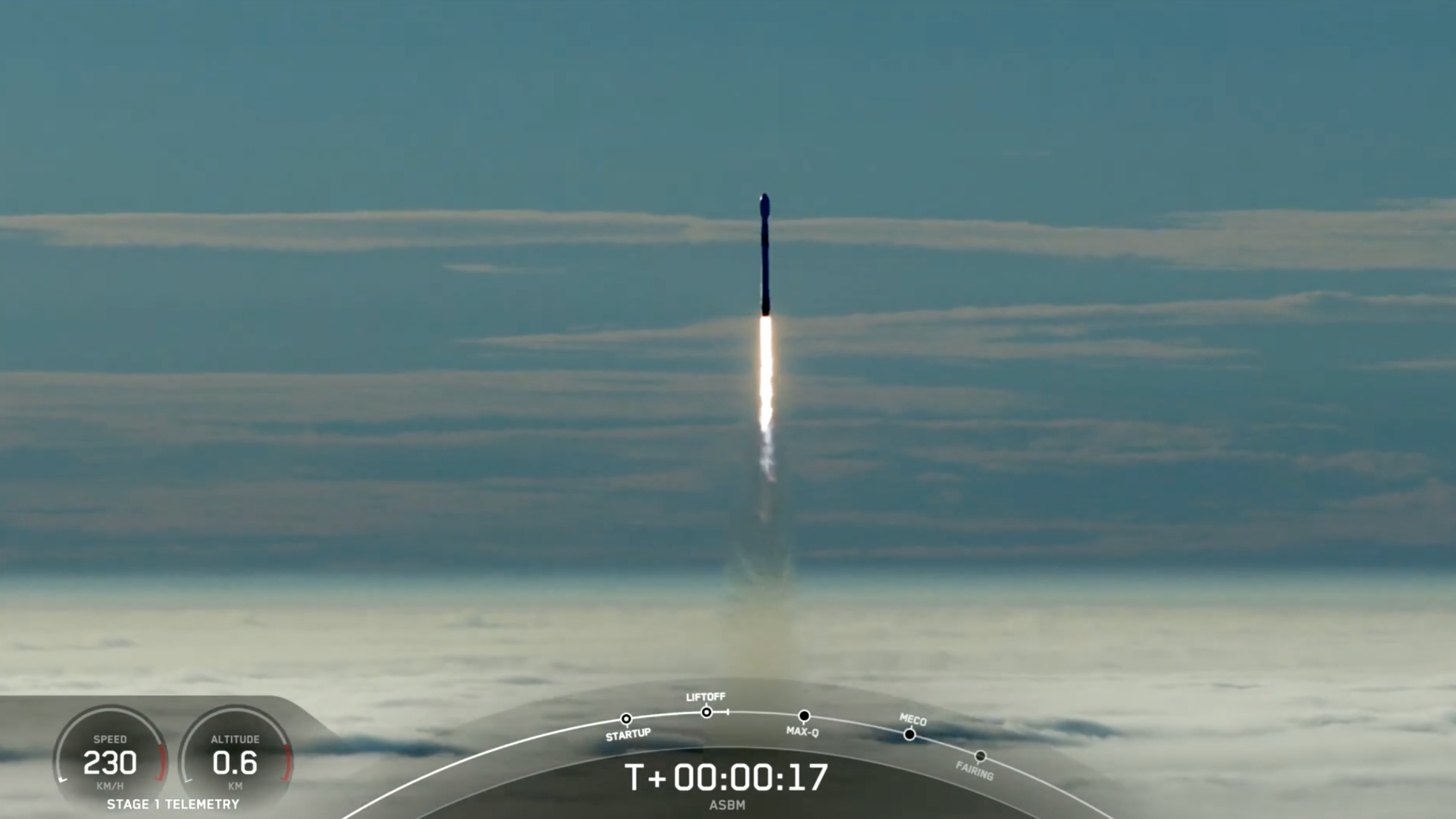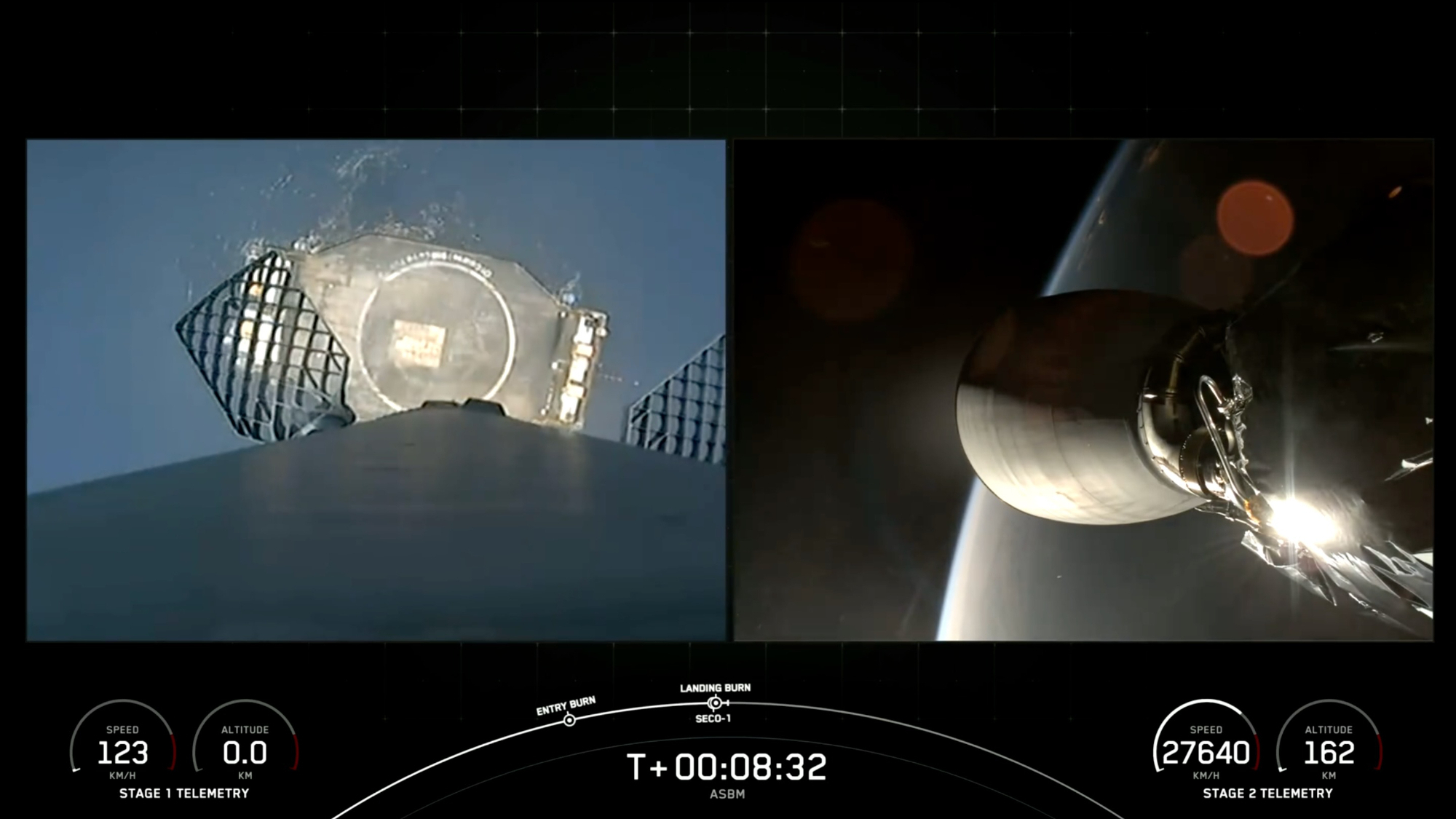SpaceX Falcon 9 rocket launches for record-tying 22nd time, sending Arctic broadband satellites to orbit (video)
A SpaceX Falcon 9 rocket launched for a record-tying 22nd time on Sunday night (Aug. 11), sending aloft two satellites that will provide broadband coverage in the Arctic region.
A Falcon 9 rocket carrying the two spacecraft of the Arctic Satellite Broadband Mission (ASBM) lifted off from California's Vandenberg Space Force Base on Sunday at 10:02 p.m. EDT (7:02 p.m. local California time; 0202 GMT on Aug. 12).
The Falcon 9 punched through a blanket of coastal fog — a common occurrence during launches from Vandenberg — as it rose through a darkening evening sky.

The Falcon 9's first stage came back to Earth about 8.5 minutes after launch as planned, landing on the SpaceX drone ship Of Course I Still Love You, which was stationed in the Pacific Ocean.
It was the 22nd launch and landing for this particular booster, according to a SpaceX mission description. That tied the company's rocket-reuse record, set this past June during a launch of SpaceX's Starlink internet satellites.
The Falcon 9's upper stage, meanwhile, continued carrying the ASBM satellites to orbit. It deployed the first one 42.5 minutes after liftoff and the second one five minutes later.
Related: 8 ways that SpaceX has transformed spaceflight
Breaking space news, the latest updates on rocket launches, skywatching events and more!
ASBM "is designed to expand broadband coverage to the Arctic region for the U.S. Space Force and Space Norway," according to aerospace giant Northrop Grumman, which built the mission's two satellites. (Space Norway is a state-owned company that develops and manages strategic space infrastructure for the nation.)
The ASBM satellites — which will operate in a highly elliptical orbit to reach their coverage area — carry multiple instruments, "including military payloads for the U.S. and Norwegian Armed Forces, as well as a commercial payload for Viasat, and a radiation monitor for the European Commission," Northrop Grumman wrote in its mission description.
Sunday's launch was part of a busy weekend for SpaceX. On Saturday morning (Aug. 10), the company launched 21 Starlink satelllites from Florida's Cape Canaveral Space Force Station. SpaceX tried to launch another Starlink batch on Sunday morning from NASA's Kennedy Space Center, which is also on Florida's Space Coast, but aborted that try with 46 seconds left in the countdown.
Editor's note: This story was updated at 10:54 p.m. ET on Aug. 11 with news off successful launch, rocket landing and satellite deployment.

Michael Wall is a Senior Space Writer with Space.com and joined the team in 2010. He primarily covers exoplanets, spaceflight and military space, but has been known to dabble in the space art beat. His book about the search for alien life, "Out There," was published on Nov. 13, 2018. Before becoming a science writer, Michael worked as a herpetologist and wildlife biologist. He has a Ph.D. in evolutionary biology from the University of Sydney, Australia, a bachelor's degree from the University of Arizona, and a graduate certificate in science writing from the University of California, Santa Cruz. To find out what his latest project is, you can follow Michael on Twitter.

